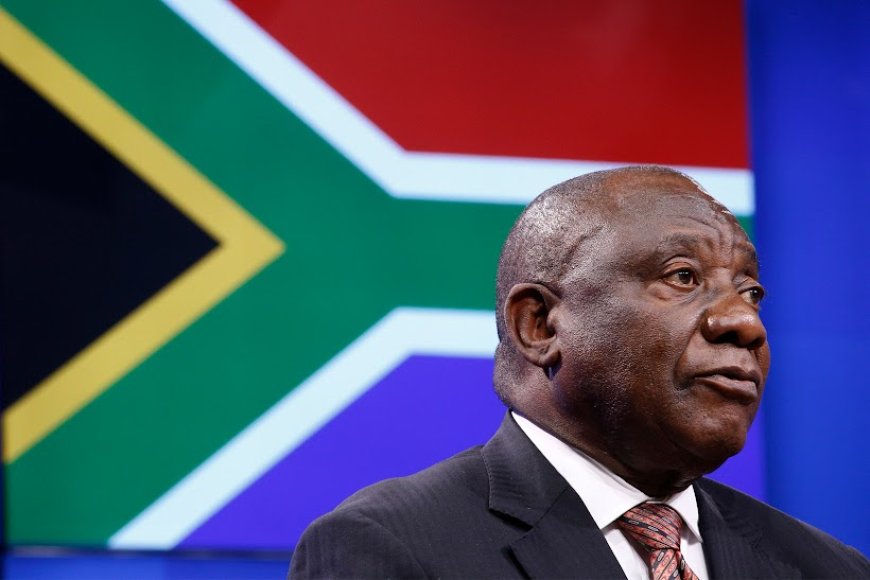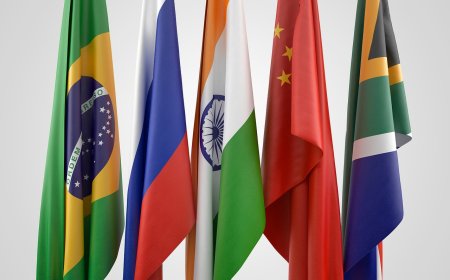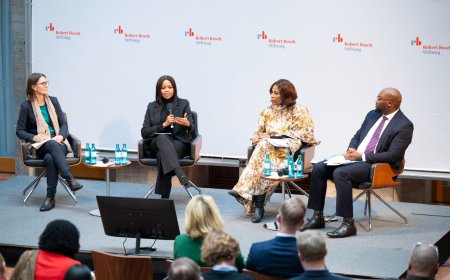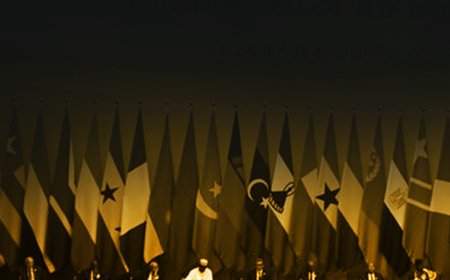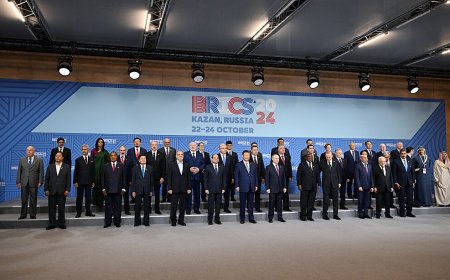Summary
- Between 1994 and 2024, the African National Congress (ANC) was South Africa’s dominant political force, winning between 57% and 69% of the vote.
- Following the 2024 elections, this is no longer the case. The ANC has lost its long-standing majority and now has a threadbare plurality of about 40%.
- The liberation-movement-turned-governing-party is not completely out of the picture, however. It still holds the most powerful positions in the legislature and the executive. Nevertheless, it has to share power with a number of parties, some of whom are ideological opposites.
- The country has an unsustainably high unemployment rate of over 30%, has numerous service delivery challenges, is faced with an energy crisis and consistently ranks as the most unequal economy in the world. Will the new coalition government deliver?
- In a peculiar way, South Africa’s international economic fundamentals link it heavily with the West, while its international politics lean towards the West’s adversaries. This contradiction will likely continue. However, it may prove fatal for the new coalition cabinet.
Background
From 1994 until May 2024, the African National Congress (ANC) was South Africa’s dominant political force, setting the country’s policy agenda at home and abroad. Following the 2024 elections – the most competitive in the country’s history – it has to share power with parties that it has long portrayed as its ideological opponents. In being part of a coalition, which it has chosen to term a ‘government of national unity’, the various political parties have so far averted the crisis of a cabinet not being formed. The exclusion of the populist parties from the coalition has further bolstered economic sentiment towards the country. The elections, in which a long-standing dominant party has conceded electoral defeat, have further shored up South Africa’s appeal as an investment market.
Nevertheless, the ANC has so far managed to hang onto the most critical ministerial portfolios – including the presidency, treasury and foreign affairs. It will use these to further drive its pro-BRICS agenda. Ironically, however, South Africa conducts most of its trade with the EU, and especially Germany; last year, they had a total of EUR 49 billion in trade (29 billion in EU exports and 26 billion in imports from South Africa). These vibrant commercial ties, therefore, exist in the context of major political disagreements: Prior to the election, for example, the Democratic Alliance (DA) leader undertook a visit to Ukraine to express solidarity, while the ANC enjoyed close ties to Russia and maintained official neutrality. These disagreements may lead to a divergent foreign policy on Israel and Palestine, BRICS and the Russia-Ukraine War. So far, the tensions have been successfully compartmentalised. Still, with every government department using its own foreign affairs desk to wield influence over foreign policy, there will be opportunities for the non-ANC parties to reset the course of South Africa’s international relations as they engage politically with the EU and Germany. For the sake of stability, both the country and its international partners would be best served by continuing to engage primarily through trade and investment and only engaging on political matters through established diplomatic modalities.
Will they be able to do so? This paper reflects on the elections and subsequently analyses the policy implications of the coalition government in the context of South Africa and a changing geopolitical landscape.
South Africa’s election: ‘2024 is our 1994’
Since 1994, South Africa has made use of a proportional representation system, in which political parties are elected to the National Assembly and the lower house of its parliament and are granted seats (out of 400) in accordance with their share of the vote. Parties release lists of candidates, with a total of 400 names, who take up such seats in line with their positioning. In turn, the lower house must elect a speaker, deputy speaker and president within two weeks of the election results being declared among its members.
In 2024, the Independent Electoral Commission (IEC), the agency responsible for running the elections, came under pressure to deliver credible elections. The sources of this pressure were twofold: on the one hand, those who claimed to be fearful of ‘rigging’ in favour of the ANC; on the other, those who claimed to be fearful of violence and intimidation by the populist parties. These fears turned out to be baseless. Indeed, the IEC has never failed in its mandate and is highly regarded both within and outside the country. However, previous elections were comparatively easier to manage. This election was different because of the number and variety of players: 70 different parties vied for power, alongside independent candidates who were able to run without party affiliation.
Who were the Contenders?
In the run-up to the election, the political parties thought likely to see movement in their support base were the ANC itself, the DA (the only ‘white-led’ major party, which governs one of the country’s nine provinces), the Economic Freedom Fighters (a pro-socialist party popular with the youth) and the Inkatha Freedom Party (which typically performs best in the KwaZulu-Natal province, where its Zulu traditionalism resonates). These parties obtained 57.5%, 20.77%, 10.8% and 3.3%, respectively, in the 2019 election. Still, the new entrants, such as Action SA (established in 2021), RISE Mzansi (May 2023) as well as the MK Party (established in December 2023 by former president and ANC leader Jacob Zuma), were also expected to have some impact.
Since 1994, the ANC has been South Africa’s dominant party, enjoying power in eight out of nine provinces and drawing from a liberation dividend for having led the struggle against white domination from 1912 until the end of apartheid in 1991. With Nelson Mandela at the helm, it went on to easily win the historic 1994 election and maintained landslide victories until 2019, when it won by a relatively low 57%, a far cry from its peak of 69.69% in 2004. Since then, the party, led by the current Ramaphosa government, has under-performed, particularly on employment and service delivery (seen and felt most vividly in the rolling electricity blackouts known as load-shedding). The ANC’s slow decline is seen in successive local government elections, which are run two years before the provincial and national elections. In the most recent such election (2021), the party obtained 45.59% in the municipal vote and lost nearly all the major cities (including the capital Pretoria and economic hub Johannesburg).
Main campaign issues and voter turnout
Corruption was one of the key political issues in the minds of many South Africans as they went to the polls. While the incumbent president was elected in part because of his anti-corruption image and rhetoric, he oversaw the maladministration of Covid-19 funds, a dubiously ‘confidential’ deal to privatise the state-owned South African Airways, and the Phala Phala scandal, in which the president himself was implicated and faced a no-confidence vote in December 2022. He survived owing to the ANC’s then-majority (with nearly all its members voting along party lines). However, the report commissioned by parliament, which recommended further investigation, had the potential to be resuscitated and would lead to an investigation by a new parliament in which the ANC held fewer than 50% of the seats. The four-year Judicial Commission of Inquiry into Allegations of State Capture, Corruption and Fraud in the Public Sector, including Organs of State, implicated a number of ANC leaders in its proceedings and final report, further tainting the embattled party.
A second issue is inequality. The country consistently ranks as the most unequal economy in the world. Despite legislation pushing for economic empowerment and redress, the democratic government has been unable to reverse the pattern of racialised inequality, which still sees the black majority earn, save, invest, and therefore own less than its white counterpart. Various parties put forward divergent proposals to respond to this issue. The left-leaning EFF advocated for nationalisation of major corporations and expropriation of privately owned lands for the benefit of the majority. On the other hand, the DA proposed a policy platform that would remove racial classification, such as hiring employees and university acceptance, and instead use economic status as the basis for consideration. The ANC’s policy platform was based on a continuation of its programmes, which include preferential procurement from black-owned businesses, as well as awarding government contracts to the historically disadvantaged section of the population.
Service delivery was a third major concern among voters. Given the majority of the population’s dependence on government services, these are crucial to the lives of tens of millions who rely on public health and education, as well as the state power utility – the legal monopoly Eskom – for their electricity. However, these have been underperforming for about a decade. Despite notable accomplishments such as a successful HIV/AIDS response and advanced research capabilities (which saw the country discover the omicron variant of COVID-19), the sector is riddled with corruption and inefficiencies. The government’s last-ditch attempt to win over voters came in the form of the president’s signing of the National Health Insurance Act two weeks before the election. The Act mandates the formation of a health insurance fund, which will become a medical aid scheme for all to use in private hospitals. (However, this will only enter into force in seven years). This is an unintentional recognition of the low quality state of public hospitals. The same is true of the education sector, which in turn perpetuates the economic inequality alluded to earlier. While education is compulsory, it does not match the quality of education in the private sector and has contributed to the high unemployment seen in the country.
The bulk of the country’s 32% unemployed is made up of the youth. Within themselves as a subgroup, the youth have an unemployment rate of some 60%. Meanwhile, more than 11 million of out of 27 million registered voters are between the ages of 18 and 39, suggesting that the election was poised to be decided by this demographic. However, their age means that the only government they have experienced in South Africa is that of the ANC; they have little to no recall of apartheid, which is often the contrast posed by the ruling party when canvassing. They are more concerned about service delivery, including load shedding, water outages and pothole-riddled roads, in addition to unemployment amid sluggish economic growth. While both the IEC and political parties invested considerable effort and resources into ensuring youth voter turnout, the turnout was at 17%, four percentage points lower than the previous 2019 election. This signifies a deepening voter apathy that seems to correlate strongly with growing youth unemployment.
The results and aftermath
The election results were officially declared on the 2nd of June by the IEC. Though known for some days in the lead-up to the ceremony (having been shown in real-time on the Commission’s website), the declaration made the outcome official. Accordingly, the ANC obtained 40.18%, a substantial loss of its majority, having stood at 57% in the 2019 general elections. Behind the ANC was the DA, with 21.81%. The third-largest party, with 14.58%, was Zuma’s MKP. Assuming some of the MKP voters were disgruntled ANC voters, the ANC may well have retained its majority had the MKP not competed in the elections. The EFF, now at third place, obtained 9%. The rest of the vote went to 14 other parties. Among these, the largest are the Inkatha Freedom Party (IFP), the Patriotic Alliance (PA) and the VF Plus. The remaining parties include, by number of seats in descending order, newcomers ActionSA, the United Democratic Movement (UDM), the African Christian Democratic Party, newly elected Rise Mzansi, the Cape Coloured Congress (CCC), Build One South Africa (BOSA), the African Transformation Movement (ATM), Al Jama-ah, the long-standing liberation movement the Pan African Congress (PAC), the GOOD party and the United Africans Transformation (UAT). As may be evident, this is the most diverse parliament in South Africa’s history; in reality, it is a constellation of small parties, each with a small seat share.
What did this all mean for the ANC following the 2024 election? The results were such that the ANC would need all the parties to join in coalition, if it were to attempt to form a government outside the major parties. This coalition was both improbable and unappealing. The country therefore faced four practical scenarios. First: a coalition between the ANC and the DA. Second: a coalition between the ANC and the MKP or the EFF. Third: a coalition among these other parties without the ANC being involved. Fourth: new elections if no president were elected within fourteen days. All these scenarios were unlikely for various reasons. The first would have been politically difficult, given the perception of the DA as a white-dominated, even racist, party. The second scenario was precluded by the animosity between the ANC and its breakaway parties, some of whom called for the removal of Cyril Ramaphosa as a precondition for negotiation. The third scenario was impeded by the lack of coherence among the smaller parties, with no party likely to emerge as a leader in the absence of the ANC. Given the misgivings about the election, the fourth scenario would have proved risky. Claims of ‘rigging’ in the May election – unsubstantiated as they were – would have risked chaos and even violence. It was also not desirable for the ANC, as it had the most to gain from the postelection landscape, if it could pull it off.
A fifth scenario materialised on the 6th of June when the ANC, following three days of intensive meetings among its National Executive Committee (NEC) – the party’s 80-member body; the highest decision-making structure between conferences – announced that it had decided to invite all parties who were interested to join in a government of national unity (GNU). The GNU may be seen as a process. That is, it may be interpreted as a method of forming a coalition government by issuing an open call to all parties interested in co-governing with the ANC. In practice, that scenario encompassed a grand coalition, composed of as many parties as possible, which ANC chose to call a government of national unity. In opting for this, the party was playing into a familiar language, given that South Africa had been led by a legally-mandated GNU, stemming from the interim constitution of 1994 (which was replaced by the 1996 constitution, the country’s governing law). There are some differences, however. Notably, in 1994 the ANC had a comfortable majority of more than 60%. Moreover, GNUs are typically formed through the participation of all parties. Thus, this particular modality has been seen as an attempt by the ANC to shield its coalition with the DA by including other parties.
Soon after the ANC announced the open call, the DA, IFP and PA expressed interest. They signed a Statement of Intent, a 25-item document which covers a number of areas, such as principles, policy priorities and the modalities of the envisioned GNU – including the apportionment of legislative and executive roles and management of consensus. A number of other parties followed suit, with the GNU eventually being composed of 10 parties, including the original four, as well as the VF Plus, the UDM, the PAC and GOOD. Additionally, Rise and UAT entered a confidence-and-supply agreement with the ANC/GNU. The former parties have all been granted positions in the new national executive. In addition, the deputy speakership of the lower house is a member of the DA, while the speaker is the ANC’s Thoko Didiza, a former minister of agriculture and land reform. The formation of the cabinet proved the most protracted dimension, taking some three weeks to accomplish.
Forming the cabinet
By virtue of South Africa’s constitution, the chief justice of the constitutional court presides over the election of the speaker, the deputy speaker and the president. These elections were accomplished on the 14th of June. In the weeks running up to the 30th of June, the parties engaged in tense negotiations over the allocation of cabinet portfolios, both in terms of numbers and the specific ministries. The DA proved the most eager to obtain certain positions. In a leaked letter dated the 24th of June, the party’s Chairperson of Council, Helen Zille, listed up to 11 key ministries, including trade, higher education, justice and foreign affairs. A firm letter issued by President Ramaphosa to the DA Federal Leader on the 25th of June seemed to bring the matter to a close; he would exercise his prerogative in making appointments and would not spend time on satisfying the party’s perceived number of ministries to which it thought it is entitled. Subsequently, the new cabinet was announced late on the evening of the 30th of June.
The announcement demonstrated three developments: (1) status quo ANC ministries, (2) reshuffled ANC ministries, and (3) new, non-ANC ministries. On the first count, eight ANC ministers returned to their portfolios, either as they were, or with some slight modifications, such as splitting of responsibilities. On the second count, ten ministers or deputy ministers returned as ministers in new roles. Thirdly, in order to accommodate the new multiparty reality of government following the election, ten ministries were allocated to non-ANC parties. The highest number went to the DA, including agriculture – which went to the DA’s leader John Steenhuisen – as well as basic education, home affairs, communication and digital technologies, environment, and public works and infrastructure. The DA also obtained six deputy ministries in finance, higher education, electricity and energy, small business development, trade, and water and sanitation.
The other parties granted ministries include the Pan African Congress, which obtained the re-established ministry of land reform, and the IFP, which obtained cooperative governance and traditional affairs, public service, and administration. The PA and the VF Plus each obtained one ministry: sports, arts and culture, and correctional services (prisons), respectively. The UDM (defence) and Al Jama-ah (social development) obtained deputy ministries. In many ways, the cabinet was expanded through post-splitting and additional deputy ministers (ten ministers now have two deputies each). The question remains, however: What does the new cabinet mean for the policy landscape within and beyond South Africa?
Social and Economic Policy Implications
The Statement of Intent, which the parties signed in order to become participants in the GNU, lays out a ‘basic minimum programme of priorities’. In Clause 11, the document establishes the prioritisation of economic growth, poverty alleviation, education and healthcare:
11.1 Rapid, inclusive and sustainable economic growth, the promotion of fixed capital investment and industrialisation, job creation, transformation, livelihood support, land reform, infrastructure development, structural reforms and transformational change, fiscal sustainability, and the sustainable use of our national resources and endowments. Macroeconomic management must support national development goals in a sustainable manner.
11.2 Creating a more just society by tackling poverty, spatial inequalities, food security and the high cost of living, providing a social safety net, improving access to and the quality of, basic services, and protecting workers’ rights.
11.3 Investing in people through education, skills development and affordable quality health care.
As seen, on the social and economic policy front there is no shortage of crises for the new government to handle. The country is facing unemployment, a sluggish economy, deindustrialisation, an energy crisis (a total of 6,950 hours, over a period of 300 days, were spent in blackouts in 2023), growing water shortages, high crime, a stressed healthcare system and illegal immigration.
The ANC mostly holds the corresponding political heads for items 11.1 and 11.2 of the State of Intent’s policy programme. These include the ministers of finance, trade and industry, employment, minerals, and social development. However, some ministers, such as those of agriculture (DA) and land reform (PAC), are with former opposition parties. On the other hand, item 11.4 is shared between the ANC and the DA through the ministries of basic education (DA), higher education and health (both ANC). In the coming five years, the various ministers will thus have to work together despite having campaigned on different – indeed sometimes diametrically opposed – approaches. Yet, no ministry operates in isolation. The Department of Finance needs to allocate its budget in a fair and optimal manner for the function of all departments. By the same token, the Department of Trade and Industry ought to be a champion for the Department of Agriculture such that the country’s produce finds newer markets, while the Department of Minerals needs to cooperate with the Department of Environmental Affairs Standards.
Through the portfolio cluster system in place in the South African government, various parties with overlapping policy domains are meant to coordinate. However, the verdict on the effectiveness of the system is still out. It also allows for bandwagoning; we may see ministries held by competing parties take credit for deliverables and distance themselves from failures.
Geopolitical Implications
The outside world is anticipating the kind of foreign policy they can expect from the coalition government. South Africa is a major player in international affairs, as recently seen in its stance against Israel, which has taken it twice to the International Court of Justice to successfully seek measures against the ongoing civilian deaths and displacements from Israel’s campaign in Gaza. The country is a member of BRICS and the G20 and is a leading regional force on the African continent. It also enjoys strong economic ties to the European Union. Indeed, the collective EU-27 is South Africa’s leading trade and investment partner, while Germany is constantly among South Africa’s top three trading sources and destinations. The country’s standing in the international community is likely to persist. However, there is a catch: South Africa’s international economic fundamentals link it strongly with the West, while its international politics lean towards the West’s adversaries. This could prove divisive, even fatal, within the new coalition cabinet.
Although foreign policy has hardly moved the needle in this election, the outcome will decide whether South Africa continues to champion the positions it has or if the inclusion of new parties will have a moderating effect. Under item 11.9, the Statement of Intent commits to ‘[a] Foreign policy based on human rights, constitutionalism, the national interest, solidarity, peaceful resolution of conflicts, to achieve the African Agenda 2063, South-South, North-South and African cooperation, multilateralism and a just, peaceful and equitable world’. This is an open-ended statement whose material meaning, as it unfolds, may lead to further disagreements.
As it moves further away from the West, the ANC's foreign policy may be described as increasingly pro-BRICS. It must now accommodate views which differ from its own in this respect. In the run-up to the election, for example, the DA wrote to the US State Department with a request for greater involvement by Washington in observing the vote. On the other hand, the DA’s leaders have, at various points, expressed opposition to South Africa’s involvement in BRICS and to the ANC government’s ‘non-alignment’ and apparent support for Russia in its war against Ukraine. The remainder of the coalition parties are either silent or closely aligned to the ANC’s own foreign policy position in their platforms. Therefore, disagreements over international affairs will be most pronounced between the two largest parties. Flashpoints such as Gaza and Ukraine may well threaten the stability of the government. So, too, would developments in the Taiwan Straits, Cuba and the Guyana-Venezuela dispute, given the ANC’s proximity to the governments in Beijing, Havana and Caracas.
Following the announcement of the cabinet, the country has a new minister of international relations and cooperation. Dr Naledi Pandor, the previous minister, has effectively retired (a commitment she made early in the election season). She is succeeded by the former minister of justice, Ronald Lamola. In his capacity as the justice minister, Lamola was key, alongside Pandor, in the country’s case against Israel at the ICJ. His move to international affairs is therefore a signal of continuity and prioritisation, given the close relationship he has with President Ramaphosa, who previously tapped him to be the deputy president of the ANC in the party’s 2022 conference. The move should be seen as a decision by the president to double down on his current foreign policy direction.
With rare exceptions, ANC deputy presidents typically go on to be president of the party and the country. It is possible, therefore, that Ramaphosa considers Lamola a future successor. A close working relationship between a president and his minister of foreign affairs is critical to the power that the minister can wield. This is especially true in South Africa, where foreign policy is increasingly not made primarily by the minister of international relations and cooperation. The minister and the department take the lead in coordinating international engagement and overseeing the staffing of diplomatic missions. In doing so, however, they give effect to the ideas and decisions of the president and the cabinet as a whole. Rarely does a minister of international relations independently give strategic direction for the country. A recent example of this was during the aftermath of the Russian invasion of Ukraine in 2022, when Minister Pandor promptly condemned Moscow’s actions. However, within a number of days, she had to backtrack when it became evident that the president had a different view and wished to chart a path of official non-alignment. Additionally, over the past two decades, other government departments have come to be foreign policy players themselves. They each have their own foreign policy desks and regularly undertake de facto diplomatic visits to other countries and international governmental organisations. They are also stakeholders in the domestic implementation of treaties that South Africa enters.
With different ministries in the hands of various parties, there will be numerous opportunities for the coalition partners to contradict and undermine one another on the international stage. Indeed, that is the liveliest landmine threatening the government's stability. It is in this arena that its unity will be put to the test.
About the Authors
Bhaso Ndzendze
Professor Bhaso Ndzendze is an associate professor of politics and international relations at the University of Johannesburg and a non-resident fellow of APRI.
Nhlakanipho Hlabisa
Nhlakanipho Hlabisa is a researcher at the 4IR and Digital Policy Research Unit at the University of Johannesburg and is currently studying for an MA in Political Science with a focus on presidential powers under the Constitution of South Africa.
